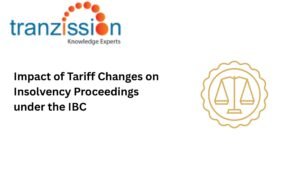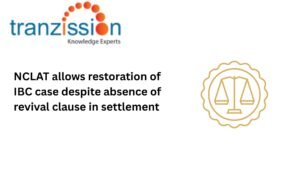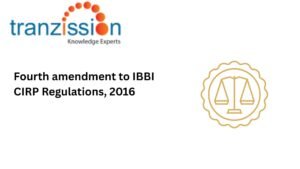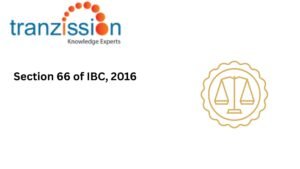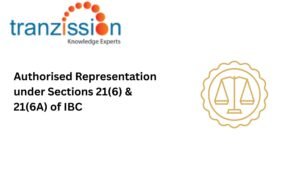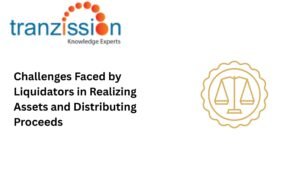
ITC Conundrum GST Law vs Insolvency & Bankruptcy Code
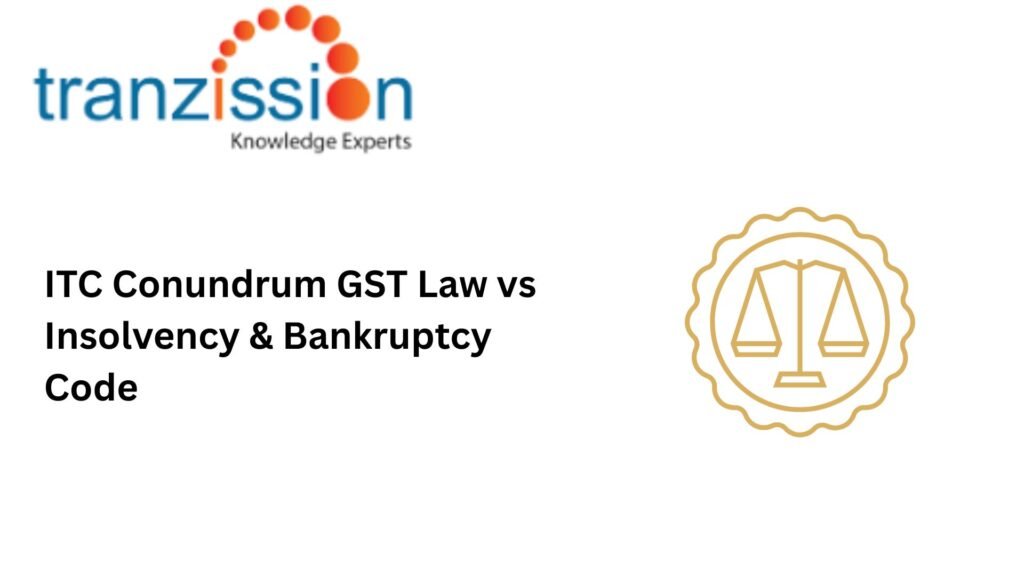
Table of Contents
The Insolvency and Bankruptcy Code, 2016 (“the IBC”) primary objective is to resolve insolvency cases in a time-bound manner, maximising asset value, and promoting entrepreneurship. During the corporate insolvency resolution process (CIRP), disputes related to Input Tax Credit (ITC) often arise, creating legal tension due to the potential impact of the resolution plan and the rights of various stakeholders. The interaction between ITC Conundrum GST Law and the IBC presents a complex conundrum, particularly for insolvency professionals (IPs), creditors, and tax authorities. Understanding this interplay is crucial for ensuring fair distribution of assets, maximizing creditor recovery, and maintaining the integrity of both tax and insolvency laws.
What is Input Tax Credit under GST?
ITC means the GST paid by a taxable person on any purchase of goods and/or services that are used or will be used for business. Input ITC can be reduced from the GST payable on the sales by the taxable person only after fulfilling some conditions. Section 16 of the Central Goods and Services Act, 2017 (CGST Act) lists the conditions to be fulfilled by GST registered buyers to claim ITC:
- He is in possession of a tax invoice or debit note issued by a supplier registered under the CGST Act or such other tax paying documents.
- He has received the goods or services or both.
- The tax charged in respect of such supply has been actually paid to the Government, either in cash or through utilisation of input tax credit admissible in respect of the said supply.
- He has furnished the return under section 39
The buyer must pay towards the supply of goods and/ or services within 180 days from the invoice date. If they fail to, then the ITC already claimed will need to be paid to the government, along with interest payable under section 50 of the CGST Act. As per section 18(3), the new entity in case of business transfer, merger, or change in ownership can claim ITC on the goods transferred to it by the old entity. .read more Section 34 of Arbitration Act
ITC During Corporate Insolvency Resolution Process
The resolution professional (RP) makes sure the company continues its business operations during the insolvency process, including filing GST and other tax returns and paying salaries and employee benefits. For instance, it is necessary to file GSTR-1 ensures accurate reporting of outward supplies and GSTR-3B helps settle tax liabilities. It is necessary to stay compliant with these filings and avoid penalties to strengthen the company’s financial health. ITC is the corporate debtor’s assets and are treated as such under the IBC. There is a specific provision under GST that covers blocked creditors or ineligible ITC, in which the taxpayer cannot claim ITC while paying output tax when they make purchases listed in this provision. Section 17(5) of the CGST Act mandates the reversal of ITC under certain circumstances such as unclaimed or blocked credit. In March 2020, a notification was issued by the GSTN, a corporate debtor would be treated as a distinct person with effect from the date of appointment of an interim resolution professional (IRP) or RP. The corporate debtor would also be required to apply for new GST registration within 30 days of the appointment of an IRP or RP.
Clash Between GST Law and IBC
- Moratorium under Section 14 of IBC: During the moratorium period, the GST authorities generally cannot initiate or continue actions, including blocking ITC. GST authorities are considered in this context and are subject to the moratorium and cannot initiate or continue actions like issuing recovery notices, attaching assets of the corporate debtor during the moratorium period. The courts have consistently held that the moratorium restricts the GST authorities from taking recovery actions against a corporate debtor undergoing insolvency. The authorities can pursue recovery after the moratorium is lifted and the CIRP is completed.
-
Priority of Claims GST Dues vs Operational Creditors: GST claims are treated as operational debt, and tax authorities are classified as operational creditors. This means that their claims are settled after secured and unsecured financial creditors, but before equity shareholders, according to the waterfall mechanism outlined in section 53 IBC .
Judicial Precedents & Rulings
In the case of In re RP of Kalpana Industries Pvt. Ltd., the Authority for Advance Ruling (AAR) granted ITC to the RP subject to specific conditions, and also clarified the availability of ITC to the RP under the GST regime. This riling can have significant implications for the RPs ability to manage the company’s financial position during the resolution process. The Supreme Court’s decision in State Tax Officer v. Rainbow Papers Ltd, created some ambiguity regarding the priority of tax dues, suggesting that statutory dues could be considered secured debt if a charge is created by law. There are conflicting decisions regarding whether ITC lapses after the commencement of the CIRP. Some rulings suggest ITC is a vested right that cannot be automatically reversed due to insolvency, while others indicate that ITC may be impacted by the specific circumstances of the CIRP and the treatment of claims under IBC.
Practical Challenges Faced by Insolvency Professionals
Insolvency professionals have significant challenges when handling ITC during the resolution, which stem from the complexities of tracing, verifying, and managing ITC claims, particularly when dealing with pre-CIRP transactions and incomplete records:
- No access to past GST records of the corporate debtor
- ITC reconciliation issues
- Delay in claiming transitional ITC
- Difficulty in responding to GST notices during CIRP
Recent Circulars & Clarifications from GST Department
In Notification No. 11/2020 Central Tax, dated March 21st, 2020 was issued to devise a special procedure to overcome the requirement of sequential filing of Form GSTR 3B under GST and to align it with provisions of the IBC. It mandates that insolvency professionals need to obtain GST registration within a specific timeframe, with extensions provided during lockdowns. RPs need to comply with notifications from other regulatory bodies, like the Insolvency and Bankruptcy Board of India (IBBI), the Reserve Bank of India (RBI), depending on the nature of the corporate debtor and the applicable regulations.
Suggestions for Harmonizing GST and IBC
To improve the interplay between GST laws and the IBC, it is recommended:
- To encourage the need for interdepartmental coordination between IBBI and GST Council.
- To dedicate a GST portal access for RPs to streamline the overall process and reduce their workload.
- To introduce relaxation in time limits for ITC claims during CIRP, and ensure that the time limits under the IBC are met.
Conclusion
While the IBC provides a moratorium period that temporarily suspends certain legal actions against a corporate debtor during CIRP, it does not negate the ongoing obligations under GST law, such as timely filing of returns and payment of taxes. Both the CGST Act and the IBC require judicial clarity and statutory amendments to reduce ambiguity and ensure smoother implementation. Greater consistency in judicial decisions, particularly regarding statutory dues under the IBC, is needed to avoid conflicting interpretations and improve stakeholder confidence. Similarly, amendments to the GST law are necessary to address emerging challenges, streamline compliance, and resolve such ambiguities in the existing framework.
FAQs
- Can an RP claim ITC during CIRP?
An IRP or RP will be able to claim input tax credit only for the invoices covering the period after their appointment, even if those invoices are bearing the earlier GSTIN of the corporate debtor.
-
Is the GST department bound by the IBC moratorium?
Yes, the GST department is bound by the moratorium imposed under section 14 of the IBC as GST authorities are considered as operational creditors.
-
What happens to unclaimed ITC post-resolution?
Any unclaimed ITC for periods prior to CIRP commencement, if not part of the resolution, are extinguished under section 31(1) of the IBC, thus reiterating the binding nature of the resolution plan on all stakeholders.

